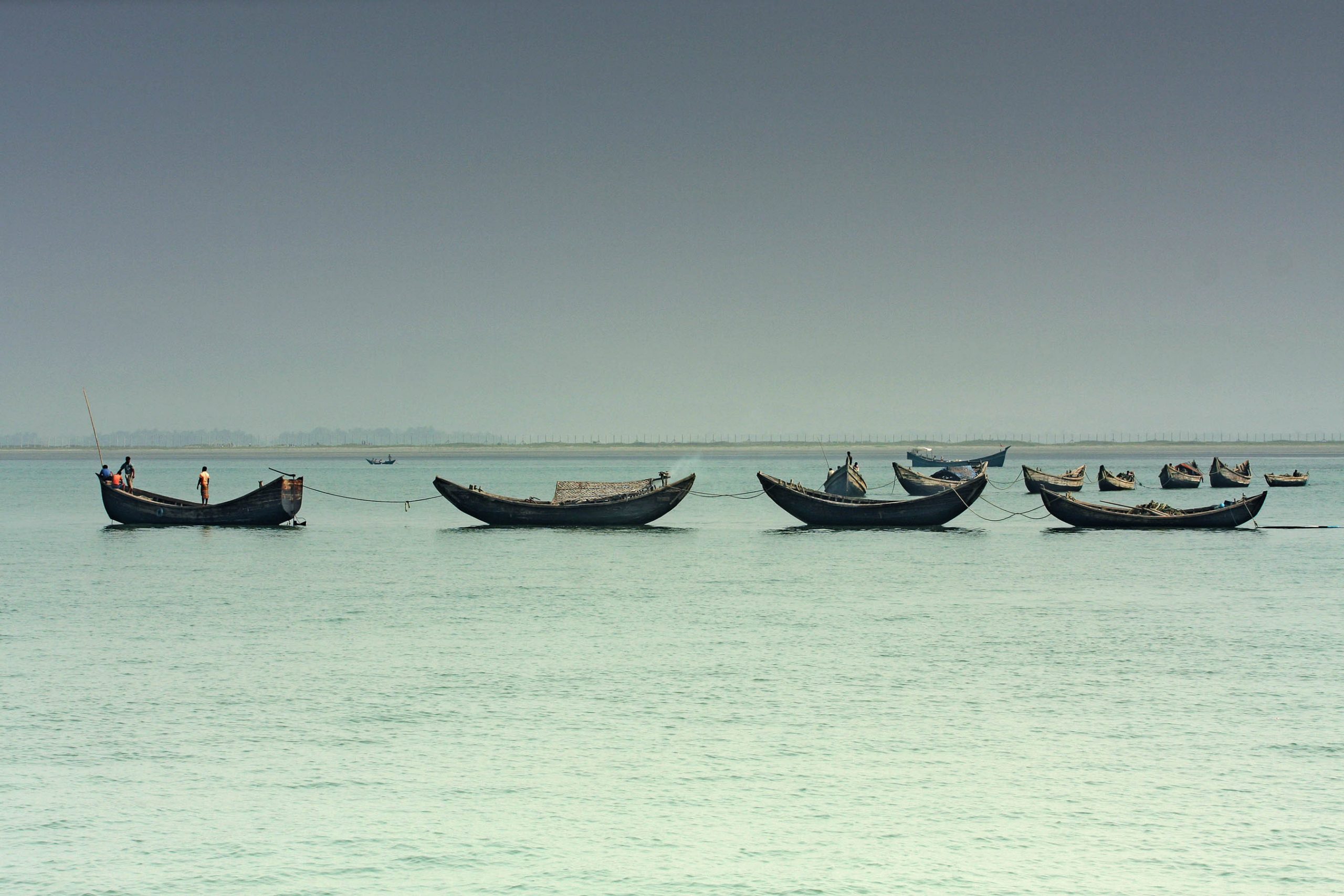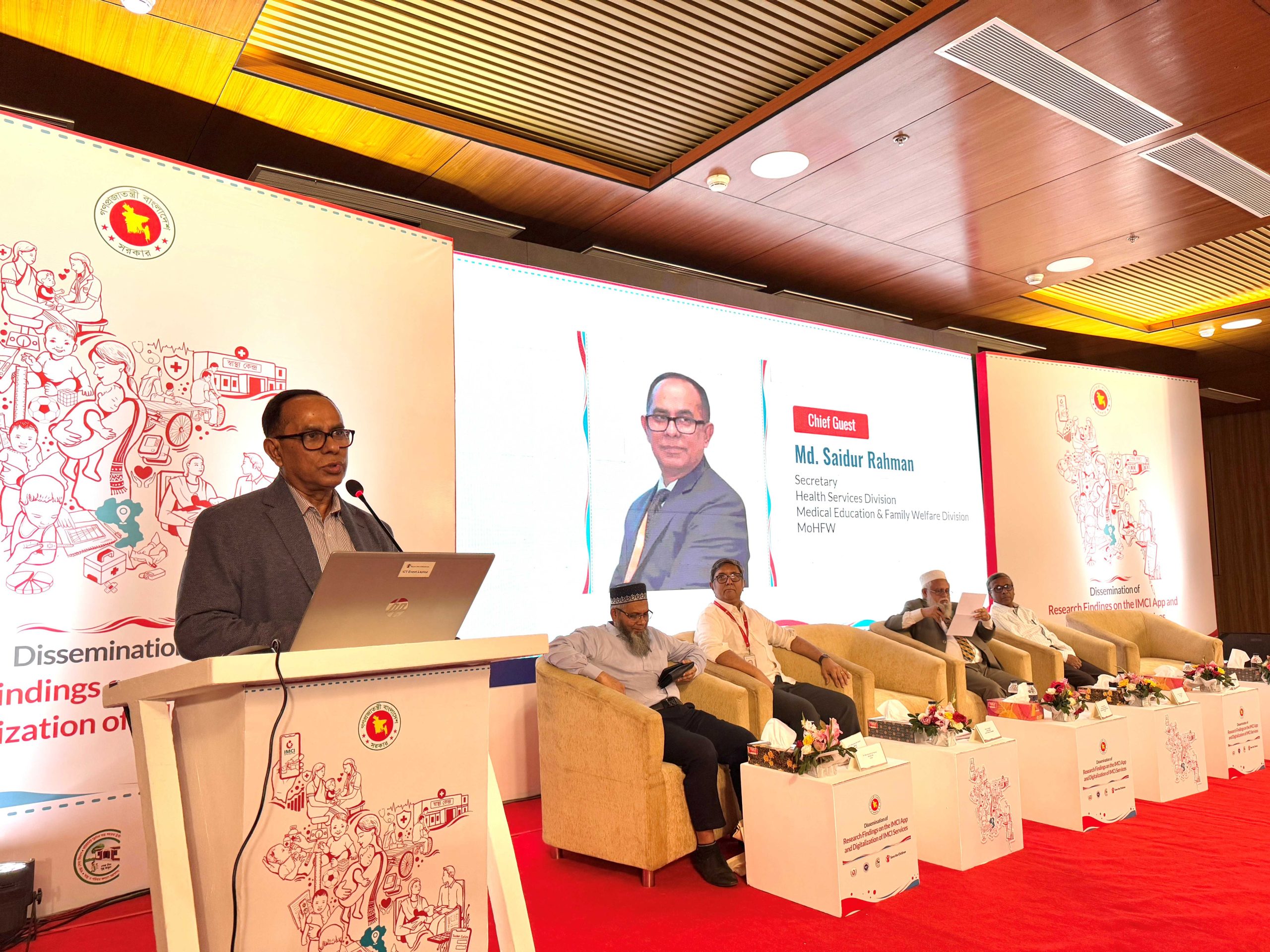The issue of the Blue Economy came to the limelight in Bangladesh context after the delimitation of the maritime boundary, especially two international verdicts on disputes with Myanmar and India. This has opened up newer potentials of extracting resources and gaining otherwise, also reminding the possibility of enhancing existing benefits in terms of natural resources and external trade
By Khawaza Main Uddin
Photos by Md. Abul Kausir, M Ponir Hossain & Din Muhammad Shibly
Standing in front of unique possibilities of immense gains from the Bay of Bengal, Bangladesh is yet to fully measure what exactly the country would benefit from the potentials of the Blue Economy. There are buzzes in the development and policymaking arenas as well as on the diplomatic front, about the term. Of course, new enthusiasm has been created among the development thinkers and policymakers – on how Bangladesh could benefit from the Blue Economy.
The issue of the Blue Economy came to the limelight in Bangladesh context after the delimitation of the maritime boundary, especially two international verdicts on disputes with Myanmar and India. This has opened up newer potentials of extracting resources and gaining otherwise, also reminding the possibility of enhancing existing benefits in terms of natural resources and external trade. In fact, Bangladesh, a unique delta, has been blessed with the sea outlet but the potentials in the Bay of Bengal have never been exploited properly.
It was not properly understood that the Bay is a key aspect of the country’s natural resource endowment. Bangladesh’s location in the world’s new centre of gravity, now shifting to Asia, has added a new dimension to the concept of the Blue Economy, which should not be limited to the efforts made within the country. There are confusions about what the Blue Economy is for Bangladesh. The ways and means on how to gain maximum from the potentials.
This situation has otherwise offered opportunities for huge investments, creation of new businesses, fresh employments and regional and international engagements apart from direct benefits from extraction of marine resources. Experts say the benefits of the Blue Economy would not come automatically. So, it’s important how the country takes preparations, necessary steps and initiatives at home and abroad to foster development by using the potentials of the Blue Economy. And unless a holistic and well-coordinated national plan is undertaken, such potentials may remain only on paper.
Unraveling the mystery
Despite its resilience and social sector progress, Bangladesh has the history of being obsessed with terms – such as ‘potential’, ‘development puzzle’, ‘economic emancipation’, ‘floating on natural gas’, ‘next investment destination’ and ‘regional trading hub’ – instead of making proper drives for attaining certain goal. Thus, notwithstanding its advancement, has missed a number of opportunities to take it to the next level of development within a generation.
The hype that has been created about the Blue Economy in recent times bears some risks of miscarriage of a concept, designed and applied already by some other countries around the world. In Bangladeshi context, however, it’s not yet very clear what the Blue Economy is, according to former Ambassador Humayun Kabir. ‘I am not yet sure what we generally understand by the Blue Economy. As a nation we first need to define what it is and how we can exploit the potentials. Potentials cannot be exploited unless we understand and the potential benefits will not come to us automatically,’ he told ICE Business Times.
So far, the discussion of the Blue Economy has been focused more on extraction of marine resources including oil and gas exploration, fishing, sustainable development, banking on the natural environment of the sea (Bay of Bengal in this case). Seaborne trade, which is already there, is also being talked about to bolster the definition of the Blue Economy, somewhat in incubator of Bangladesh’s development literature.
‘The Blue Economy is not the national economy. It’s connected to regional and international context,’ said Ambassador Kabir, now a vice president at Bangladesh Enterprise Institute. The Bay of Bengal itself is the largest one among 64 bays in the world and 1.4 billion people live along its coastline in Bangladesh, India, Thailand and Myanmar. The former diplomat felt that the puzzle surrounding the Blue Economy must be solved and that the issue must be understandable to all stakeholders including policymakers, investors and international players to give a proper signal about Bangladesh’s seriousness in harnessing benefits from it.
Business leader Abdul Haq pointed out that the Blue Economy has offered unconventional opportunities in addition to all existing and other probable benefits for Bangladesh. ‘We can extract sea weed the way Japanese do for their healthy nutritional foods. There is a huge potential in the coastal belt. And we can emerge as a regional focal point in terms of shipping, trading and other forms of connectivity,’ he said.
What’s new?
The issue of the Blue Economy came to the forefront of development discussion once Bangladesh’s maritime disputes with Myanmar and India were settled in the international forum. The new situation raised the hopes of smoother access to plenty of marine resources in the Bay of Bengal. Because, the international court verdicts ensured Bangladesh’s sovereign rights over more than 118,000 square kilometers of maritime territory, 200 nautical miles (NM) of exclusive economic zone, and 354 NM of continental shelves from the Chittagong coast.
Bangladesh earlier was in a position to extract resources in parts of these areas in the Bay but since there is no well-demarcated maritime boundary and rather there were disputes over claims of the maritime areas with Myanmar and India, Bangladesh faced both physical and mindset barriers in resource extraction that have now been removed as a result of the verdicts.
‘The delimitation of boundary with India and Myanmar has created a scope to explore mineral resources from the seabed without any obstacle,’ Prime Minister Sheikh Hasina told a recent international seminar on the Blue Economy. ‘Bangladesh earns substantially by exporting marine fishes. It is now more appropriate than ever to rely on ocean resources and management of such resources through the concept of Blue economy.’
In an article on ‘From Scarcity to Abundance’, Ferdous Ara Begum wrote that the Blue Growth is the long-term strategy to support sustainable growth in the marine and maritime sectors as a whole. ‘Seas and oceans are drivers for the Blue Economy while technology and knowledge are the twin resources to take control over these resources,’ she added. In the light of the concept developed by Gunter Pauli, the researcher noted that the ultimate aim of the business model of Blue Economy is to transform the country from scarcity to abundance by tackling issues that cause environmental and related problems in new ways.
The new atmosphere, in which the Blue Economy is being widely discussed, has reminded the policymakers, local and foreign investors, businessmen, fisherman and many other stakeholders of the fact that the Bay of Bengal is one of the greatest gifts of nature to Bangladesh as British Prime Minister Winston Churcil had once considered English Channel as a strategic advantage. Ambassador Kabir pointed out that Bangladesh’s Blue Economy is connected to Myanmar, India, Thailand, Sri Lanka and extra-regional countries like China and the USA.
The Blue Economy is also part and parcel of the post-2015 development agenda. The goal 14 of the proposed Sustainable Development Goals (SDGs) says: ‘Conserve and sustainably use the oceans, seas and marine resources for sustainable development.’ One of the targets is to, ‘by 2020, sustainably manage and protect marine and coastal ecosystems to avoid significant adverse impacts, including by strengthening their resilience, and take action for their restoration, to achieve healthy and productive oceans.’ It called on the global community to ‘increase scientific knowledge, develop research capacities and transfer marine technology taking into account the Intergovernmental Oceanographic Commission Criteria and Guidelines on the Transfer of Marine Technology, in order to improve ocean health and to enhance the contribution of marine biodiversity to the development of developing countries, in particular SIDS and LDCs.’
Potentials to exploit
The Blue Economy is widely defined as the economy of sustainable economic development taking advantage of the blue ocean. Its sub-sectors include aquaculture, coastal tourism, marine biotechnology, ocean energy, and seabed mining. Md Khurshed Alam, a secretary (maritime affairs) at the foreign ministry, maintained that the Blue Economy is not merely marine fishing. About 30 million Bangladesh people depend on oceanic economic activities such as fisheries and commercial transportation.
However, Bangladesh accounts for less than five per cent of around six million tonnes of fish caught from the Bay every year. It is said that India, Sri Lanka, Myanmar and Thailand used to take major share of marine fish since Bangladeshi fishermen could not go beyond 30 miles in the Bay with their wooden trawlers. As many as 475 species of fishes are found to have been available in the Bay.
‘The Bay of Bengal contains a wealth of living and non-living resources. Through proper steps, the country can harness the potential of marine fisheries, aquaculture, marine tourism, the salt and pearl industries, and ecosystem services with eco-friendly sustainable energy,’ said Prof. Dr Nani Gopal Das of Chittagong University’s Institute of Marine Sciences and Fisheries.
In an essay on ‘Integrated maritime policy to boost Blue Economy’, Kamal Uddin Bhuiyan and Md Jahangir Alam expressed their views that the concept of blue economy of Bangladesh could be developed, but should not be ‘limited to, traditional and emerging sectors such as shipping and port facilities, seaborne trade, fisheries, coastal tourism, aquaculture, renewable blue energy, biotechnology and submarine mining’.They said oceans offer enormous potential for the generation of renewable energy – wind, wave, tidal, biomass, and thermal conversion and salinity gradients. ‘This renewable energy sources could help diversify our energy portfolios and secure higher levels of energy security.’
In the recent international seminar on the Blue Economy, experts raised a number of potentials like production of industrial salt using advanced technologies and extraction of other mineral resources beneficial to Bangladesh, such as gas, copper, magnesium, nickel and precious metals, including cobalt.
How to proceed
Dhaka has shown the willingness to utilise the potentials of the Blue Economy and a seminar was organised in this regard recently. The government has reportedly taken an initiative to conduct a survey of marine resources through coordination by the Bangladesh Navy authorities. International oil companies are being invited to the tenders for exploring natural gas and petroleum resources in the Bay.
However, the country seriously lacks knowledge, skilled manpower and technology to benefit from the Blue Economy, especially for exploiting deep-sea fishes and seabed resources. Abdul Haq, a director at Federation of Bangladesh Chambers of Commerce and Industry (FBCCI), stressed the need for building manpower through proper technical and research-oriented education at universities and other institutions. ‘Unless we take preparations in terms of manpower, the Blue Economy will just elude us. We need massive investment in this area and also physical investments aiming at shorter and longer term targets,’ he added.
In the meantime, the government has taken steps to impart education in Oceanography at Dhaka University and Chittagong University to create skilled manpower on marine sciences. Also, reports said, the first National Oceanographic Research Institute is going to be established in Ramu, Cox’s Bazar, to create a marine scientific community for research.
Suggestions also came from various quarters for development of existing sea ports — Chittagong and Mongla – and construction of a deep sea port. ‘We have to think of a Master Plan focusing on the entire coastal belt and targeting extra-regional players,’ said Abdul Haq. He also underlined the importance of proper land management for setting up industries in the coastal areas without affecting the environment and for building human resources and physical infrastructures to benefit from regional connectivity. ‘Potentials are there but they will not come automatically. We have to be smart and serious in utilisng them.’
Challenges within
Prime Minister Sheikh Hasina, at the seminar on the Blue Economy acknowledged that Dhaka has a dearth of skilled manpower to ascertain the availability and explore the resources. There is also lack of proper technology for exploiting deep sea fishes and seabed resources. ‘There is no doubt that we are lagging behind in terms of proper planning, appropriate knowledge and methods for coordinated development of Blue Economy,’ she said.
Underlining the importance of knowledge of seas and oceans, Shamsul Alam, a Member of General Economics Division at the Planning Commission, told a technical workshop in Cox’s Bazar said, ‘Investing in our seas – and exploring these sustainably – are very difficult when we know less about them than we do about the surface of the moon. We need to draw long-term action plan so that we can exploit our waters in a sustainable way.’
Ambassador Kabir is concerned about capacity constraints. ‘We need visionary political actors, efficient bureaucracy, investors of real entrepreneurial attitude and innovative development thinkers to cash in on the Blue Economy,’ he said. It was widely known that official policies often did not encourage the businessmen to come up with bigger investments in extracting resources such as fishing. Bangladesh also has lack of seafaring ships.
Kamal Uddin Bhuiyan and Md Jahangir Alam, in their article, argued that sustainable blue economy and blue growth for sustainable development is not possible without ensuring maritime security, protecting and preserving marine environment, conserving marine living and non-living resources and preventing marine pollution. ‘Piracy, slave and drug trafficking, drugs and money laundering, human trafficking, arms trafficking, narco-terrorism have become a common phenomenon in the high seas and EEZ areas of Bangladesh,’ they said.
Risks of geopolitical trap
Bangladesh is in the middle of a strategic shift from the West to Asia and a rising US$100 trillion economy by 2030 and the South Asian country with such a blessing of the sea outlet and prospects of the Blue Economy is also facing some risks of geopolitics. ‘Let the geo-strategic advantages and the potentials of the Blue Economy not turn into strategic trap, where Bangladesh may be in a shaky position due to rivalry and competition between regional and global actors,’ said economist Hossain Zillur Rahman, adding that it’s time to handle the whole issue quite carefully if ‘we want to benefit from the Blue Economy instead of sitting idle’.
There are apprehensions of even superpower strategic competition, given China’s and Japan’s interests in becoming a part of the growth in this part of the world, whatever they call it — Bay of Bengal Industrial Growth or Maritime Silk Route. Apart from two Asian economic superpowers’ interests, the United States is a key player in its diplomatic pursuit of economic benefits from the Asian growth through US presence in the Indian Ocean, where India, the rising power, is inherently active.
Acknowledging the concerns, Ambassador Humayun Kabir expressed his conviction that it would be wrong to embrace an ‘either or’ approach if Dhaka wants to really benefit from the Blue Economy. ‘With its history, maturity, and resilience of the people, Bangladesh can rather emerge as a strategic bridge between the superpowers for collective benefits,’ he said. Abdul Haq insisted that Dhaka must be ‘very smart’ to benefit from the Blue Economy, through both domestic policies and preparations and diplomatic and investment initiatives.
New approach required
Experts say Bangladesh must believe that the Blue Economy is an opportunity, realistic opportunity that can be and must be utilised through broad-based national efforts, not a piecemeal initiative or casual efforts.
They have underscored the need for a Master Plan, based on consensus at all levels to employ all national efforts for the benefits of all citizens including businesspeople, who would be directly involved in the process of investments, setting up industries and business entities and venturing on entrepreneurial initiatives for capitalising on the potentials of the Blue Economy.
The prospective benefits, according to them, are enormous – from fishing to oil and gas exploration, from shipping to tourism, from mineral resource extraction to enhanced intra-and-inter-regional trading, from industrial relocation to inter-connected growth. What is needed is policy initiative to be followed by regulatory and other supports to stakeholders. The concept of Blue Economy is an acid test for both public and private sectors.















